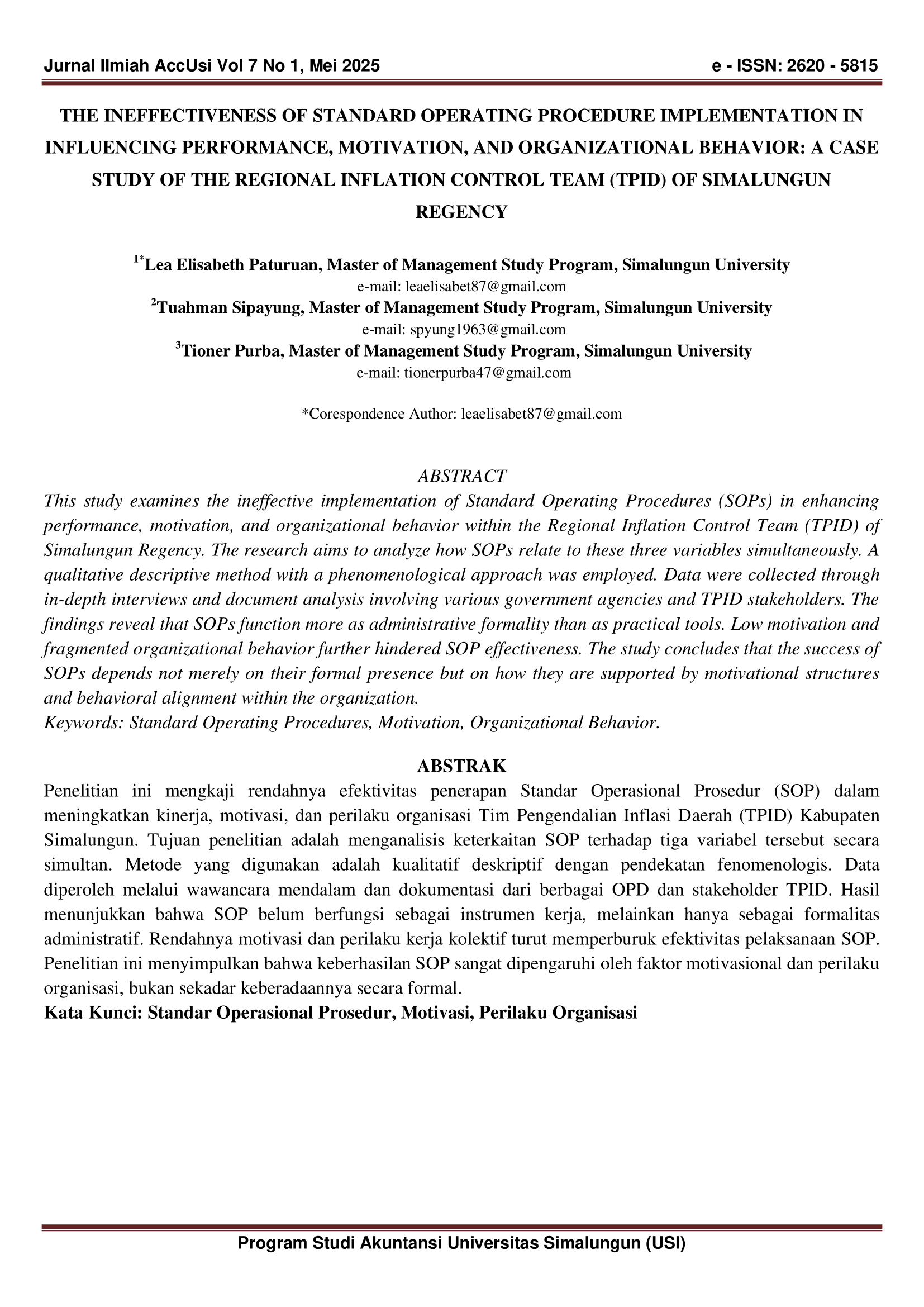The Ineffectiveness of Standard Operating Procedure Implementation In Influencing Performance, Motivation, And Organizational Behavior: A Case Study 0f The Regional Inflation Control Team (TPID) 0f Simalungun Regency
DOI:
https://doi.org/10.36985/x1yh7j43Keywords:
Standard Operating Procedures, Motivation, Organizational BehaviorAbstract
This study examines the ineffective implementation of Standard Operating Procedures (SOPs) in enhancing performance, motivation, and organizational behavior within the Regional Inflation Control Team (TPID) of Simalungun Regency. The research aims to analyze how SOPs relate to these three variables simultaneously. A qualitative descriptive method with a phenomenological approach was employed. Data were collected through in-depth interviews and document analysis involving various government agencies and TPID stakeholders. The findings reveal that SOPs function more as administrative formality than as practical tools. Low motivation and fragmented organizational behavior further hindered SOP effectiveness. The study concludes that the success of SOPs depends not merely on their formal presence but on how they are supported by motivational structures and behavioral alignment within the organization
Downloads

Downloads
Published
Issue
Section
License
Copyright (c) 2025 Lea Elisabeth Paturuan, Tuahman Sipayung, Tioner Purba (Author)

This work is licensed under a Creative Commons Attribution 4.0 International License.







